
Emily Conover
Physics, Senior Writer, Science News
Physics writer Emily Conover loves physics for its ability to reveal the secret rules about how stuff works, from tiny atoms to the vast cosmos. Before becoming a science journalist, she studied physics at the University of Chicago. There, she investigated the weird ways of tiny particles called neutrinos. She has previously written for the Milwaukee Journal Sentinel, Science Magazine and the American Physical Society. She is a two-time winner of the D.C. Science Writers’ Association Newsbrief award.

All Stories by Emily Conover
-
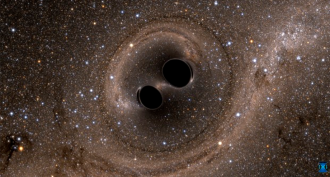 Physics
PhysicsTrio wins physics Nobel for detecting gravity waves
The 2017 Nobel Prize in physics went to three physicists for helping figure out how to search for ripples in spacetime — which launched a new field of astronomy.
-
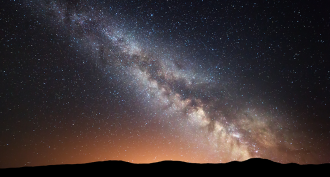 Physics
PhysicsThe Milky Way galaxy houses 100 million black holes
Astronomers are estimating the number of black holes in galaxies of all sizes.
-
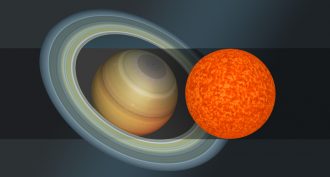 Space
SpaceNewfound stars rank as farthest and one of the smallest
Astronomers have found two stars for the record books — the most distant ever observed and one of the tiniest now known.
-
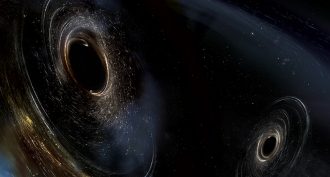 Physics
PhysicsGravitational waves detected yet again
For the third time in 16 months, scientists have announced detection of gravitational waves washing over the spacetime environment in which Earth resides. This seems to show that such waves may not be rare.
-
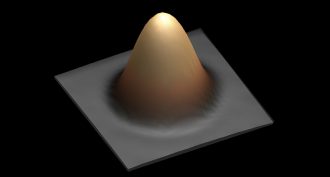 Physics
PhysicsSingle atoms become teensy data storage devices
Most people consider a thumb drive to be an amazingly small device for storing data. But this new system uses a ten-thousandth the number of atoms of today’s data-storage devices.
-
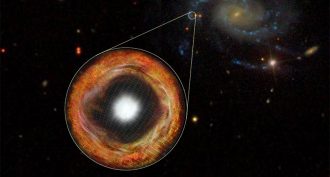 Physics
PhysicsStar caught passing gas before exploding
Stars can become unstable as they near death, a new study suggests. Some may even spew gas for a year or so before they explode.
-
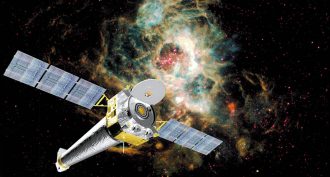 Physics
PhysicsStrange X-rays point to possible ‘dark’ matter
Scientists have been looking for “dark” matter. It’s supposed to make up most of the universe — but it’s also invisible. X-rays may now point to where some of this weird stuff is.
-
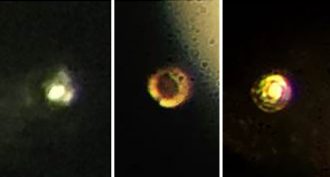 Chemistry
ChemistryScientists claim to have turned hydrogen into a metal
Most people know hydrogen as a gas. But under high pressure, scientists now think they’ve converted it into a reflective metal. Not everyone is convinced.
-
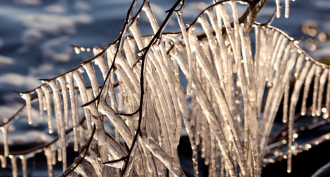 Chemistry
ChemistryHere’s how hot water might freeze faster than cold
There’s a new explanation for how hot water freezes faster than cold water. But not everyone agrees it’s right, or that the effect can happen at all.
-
 Physics
PhysicsWeird physics warps nearby star’s light
Scientists have observed a bizarre effect of quantum physics in light coming from a nearby neutron star.
-
 Physics
PhysicsMath predicts weird materials; leads to 2016 physics Nobel
The 2016 Nobel Prize in physics will go to three researchers that have made discoveries about exotic states of matter.
-
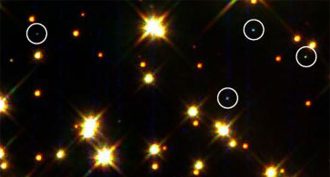 Space
SpaceSome white dwarf stars point to possible dark matter
Certain white-hot stars are cooling too fast for scientists to explain — unless they consider the presence of “axions.” These never-seen, but suspected particles could be shuttling away the extra energy from these cooling dwarf stars.